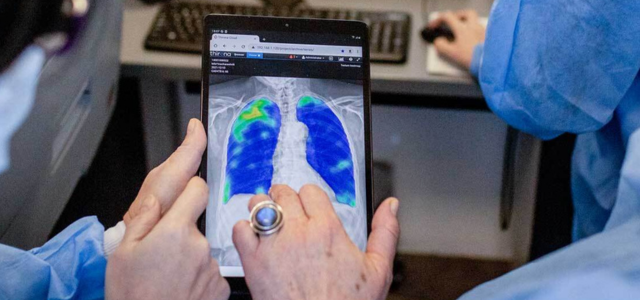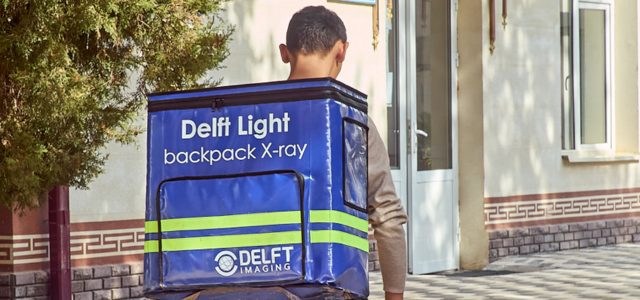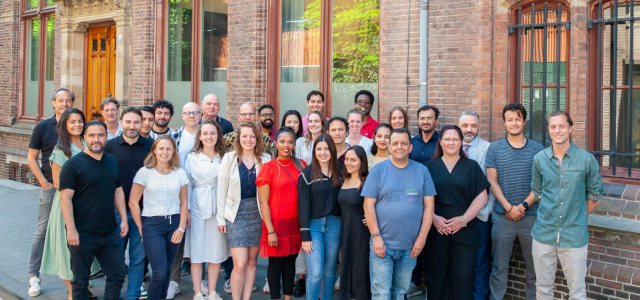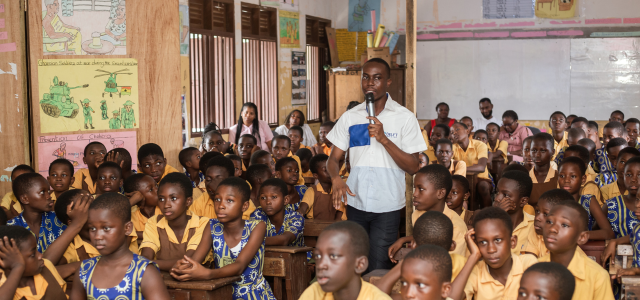Bangladesh is a vast and densely populated country with approximately 165 million people in 2020. In that same year, 360,000 estimated people developed TB, of which 30,000 were children. There were 129,919 missing people with TB, and 20,637 were children.
The current situation can be dramatically improved. The target proposed is a 95% reduction in TB deaths and a 90% reduction in new cases in 20 years.
With WHO and Stop TB Partnership funding, we, alongside IRD, set up a new approach to fight against TB in Bangladesh. The focus was on increasing early case detection, reporting and treating TB and serving poor communities in Dhaka, Bangladesh.
Under the project, in 2013, we installed an EasyDR digital X-ray system with CAD4TB, partnering with ICDDR’B. Rolled out using an innovative pay-per-use scheme, the lung screening centre charged a modest fee for every “lung screening.” A part of this fee supported the cost of the X-ray units. This system is still utilised today to help with tuberculosis screening within the country.
In 2021, under the iNTP project (funded by USAID, supported by the Stop TB Partnership project), 14 Delft Light portable backpack X-ray systems with the CAD4TB artificial intelligence software – used to detect TB on chest X-rays were delivered. As part of the project, installation and training services were also delivered to support the program in the years to come and optimise the systems’ utilisation.
In 2023, Delft Imaging delivered another 12 Delft Light portable X-ray systems, with the CAD4TB software, installation and training services to ICDDRB,B in Bangladesh.
Making a difference
Over the years, several papers have been published researching the different solutions of Delft Imaging and its utilisation in Bangladesh. A 2017 study stated that while the radiologist’s specificity was superior, CAD4TB could save Xpert tests. A study in 2020 used CAD4TB amongst tuberculosis patients in a study on the prevalence of diabetes mellitus. In 2021, a study using CAD4TB found that the artificial intelligence algorithm could reduce the number of Xpert tests required by 50% while maintaining a sensitivity above 90%. Another study in 2022 proved that CAD4TB surpassed the human radiologists’ performance with improved triage ability compared to the older version.
Stop TB Partnership released a report in 2024 on implementing our solutions in Bangladesh as part of the iNTP project aimed at improving TB detection. Delft Light and CAD4TB have been integrated into national TB control programs, facilitating better TB detection in remote areas by providing accessible and accurate X-ray interpretations. The initiative has led to screening over 32,689 individuals, diagnosing 1452 people with TB, and improving treatment access and outcomes in the country.
In the same year, the Stop TB Partnership’s Board Report elaborated on the impact of our solutions, particularly on how optimising CAD4TB’s connectivity strengthens healthcare infrastructure. “Connectivity – Diagnostics connectivity solutions were introduced and strengthened using a variety Ethiopia’s network of GeneXperts is now connected to the LabXpert software. Stop TB supported the adoption of LabXpert under the USAID-funded introducing New Tools Project (iNTP). Use of 99DOTS in Bangladesh (source: icddr,b) of technologies in five countries, including MedX LabXpert, SystemOne Aspect and a domestically developed solution Tibulims. Dashboards connected data from GeneXpert, Truenat and CAD4TB systems, allowing for real-time nationwide monitoring of instrument performance and rapid transfer of results, and facilitating earlier treatment of people with TB and DR-TB.
Case Study
You can read the full case study “Improving TB case detection in remote areas with Delft Light & CAD4TB” here. The National TB Control Programme’s deployment of ultra-portable chest X-rays with AI in the Rajshahi division has significantly improved TB detection, particularly benefiting remote areas and aiding TB Preventive Therapy (TPT) rollout. This approach showcases the potential of AI-enhanced X-rays in identifying TB cases early, optimizing resources, and advancing equitable healthcare access. Learn how this technology is pivotal in the fight against TB.












